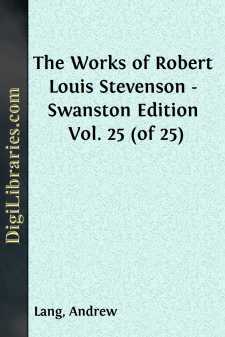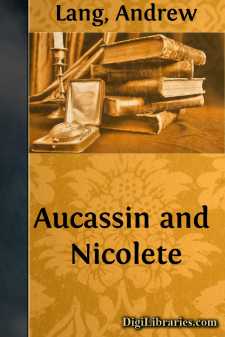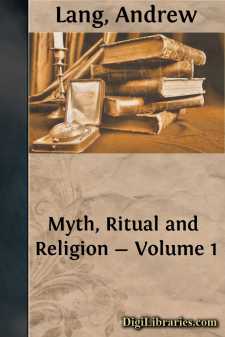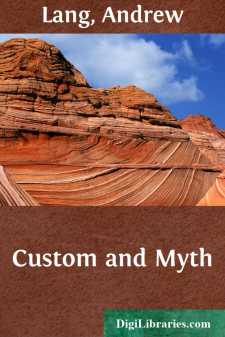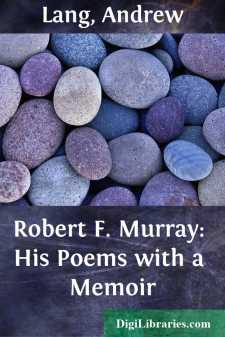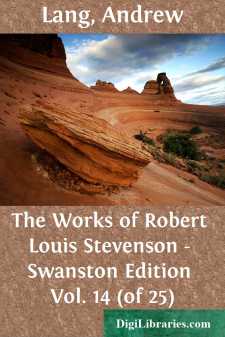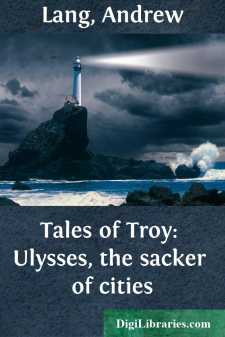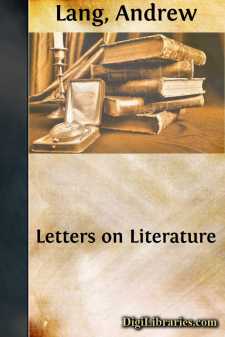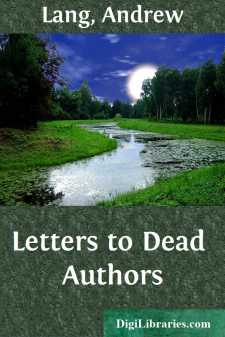Categories
- Antiques & Collectibles 13
- Architecture 36
- Art 48
- Bibles 22
- Biography & Autobiography 813
- Body, Mind & Spirit 142
- Business & Economics 28
- Children's Books 12
- Children's Fiction 9
- Computers 4
- Cooking 94
- Crafts & Hobbies 4
- Drama 346
- Education 46
- Family & Relationships 57
- Fiction 11828
- Games 19
- Gardening 17
- Health & Fitness 34
- History 1377
- House & Home 1
- Humor 147
- Juvenile Fiction 1873
- Juvenile Nonfiction 202
- Language Arts & Disciplines 88
- Law 16
- Literary Collections 686
- Literary Criticism 179
- Mathematics 13
- Medical 41
- Music 40
- Nature 179
- Non-Classifiable 1768
- Performing Arts 7
- Periodicals 1453
- Philosophy 64
- Photography 2
- Poetry 896
- Political Science 203
- Psychology 42
- Reference 154
- Religion 513
- Science 126
- Self-Help 84
- Social Science 81
- Sports & Recreation 34
- Study Aids 3
- Technology & Engineering 59
- Transportation 23
- Travel 463
- True Crime 29
Andrew Lang
Andrew Lang (1844-1912) was a Scottish poet, novelist, and literary critic, best known for his collections of fairy tales, notably the "Fairy Books" series, which includes titles like "The Blue Fairy Book" and "The Red Fairy Book." He was also a prolific scholar, contributing to the fields of anthropology, history, and folklore with works such as "Custom and Myth" and "Myth, Ritual, and Religion." Lang's work in popularizing folk and fairy tales has had a lasting influence on children's literature and the study of mythology.
Author's Books:
Sort by:
by:
Andrew Lang
Returning from Sydney at the end of October 1890, Stevenson and his wife at once took up their abode in the wooden four-roomed cottage, or “rough barrack,” as he calls it, which had been built for them in the clearing at Vailima during the months of their absence at Sydney and on their cruise in the Equator. Mr. Lloyd Osbourne in the meantime had started for England to wind up the family affairs at...
more...
by:
Andrew Lang
STORY OF THE YOUNG MAN WITH THE CREAM TARTS During his residence in London, the accomplished Prince Florizel of Bohemia gained the affection of all classes by the seduction of his manner and by a well-considered generosity. He was a remarkable man even by what was known of him; and that was but a small part of what he actually did. Although of a placid temper in ordinary circumstances, and accustomed...
more...
by:
Andrew Lang
INTRODUCTION There is nothing in artistic poetry quite akin to “Aucassin and Nicolete.” By a rare piece of good fortune the one manuscript of the Song-Story has escaped those waves of time, which have wrecked the bark of Menander, and left of Sappho but a few floating fragments. The very form of the tale is peculiar; we have nothing else from the twelfth or thirteenth century in the alternate...
more...
by:
Andrew Lang
PREFACE TO NEW IMPRESSION. When this book first appeared (1886), the philological school of interpretation of religion and myth, being then still powerful in England, was criticised and opposed by the author. In Science, as on the Turkish throne of old, "Amurath to Amurath succeeds"; the philological theories of religion and myth have now yielded to anthropological methods. The centre of the...
more...
by:
Andrew Lang
INTRODUCTION. Though some of the essays in this volume have appeared in various serials, the majority of them were written expressly for their present purpose, and they are now arranged in a designed order. During some years of study of Greek, Indian, and savage mythologies, I have become more and more impressed with a sense of the inadequacy of the prevalent method of comparative mythology. That...
more...
by:
Andrew Lang
R. F. MURRAY—1863-1893 Much is written about success and failure in the career of literature, about the reasons which enable one man to reach the front, and another to earn his livelihood, while a third, in appearance as likely as either of them, fails and, perhaps, faints by the way. Mr. R. F. Murray, the author of The Scarlet Gown, was among those who do not attain success, in spite of qualities...
more...
by:
Andrew Lang
BED IN SUMMER In winter I get up at night And dress by yellow candle-light. In summer, quite the other way,— I have to go to bed by day. I have to go to bed and see The birds still hopping on the tree, Or hear the grown-up people’s feet Still going past me in the street. And does it not seem hard to you, When all the sky is clear and blue, And I should like so much to play, To have to go to bed by...
more...
by:
Andrew Lang
THE BOYHOOD AND PARENTS OF ULYSSES Long ago, in a little island called Ithaca, on the west coast of Greece, there lived a king named Laertes. His kingdom was small and mountainous. People used to say that Ithaca “lay like a shield upon the sea,” which sounds as if it were a flat country. But in those times shields were very large, and rose at the middle into two peaks with a hollow between...
more...
by:
Andrew Lang
INTRODUCTORY: OF MODERN ENGLISH POETRY To Mr. Arthur Wincott, Topeka, Kansas. Dear Wincott,—You write to me, from your “bright home in the setting sun,” with the flattering information that you have read my poor “Letters to Dead Authors.” You are kind enough to say that you wish I would write some “Letters to Living Authors;” but that, I fear, is out of the question,—for me. A...
more...
by:
Andrew Lang
I. To W. M. Thackeray. Sir,—There are many things that stand in the way of the critic when he has a mind to praise the living. He may dread the charge of writing rather to vex a rival than to exalt the subject of his applause. He shuns the appearance of seeking the favour of the famous, and would not willingly be regarded as one of the many parasites who now advertise each movement and action of...
more...


